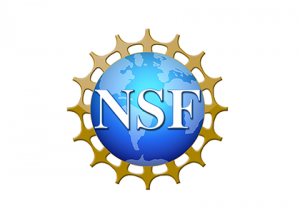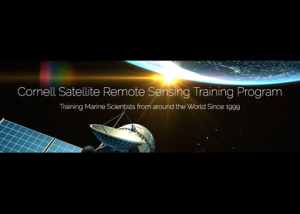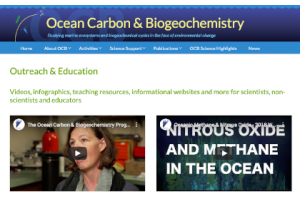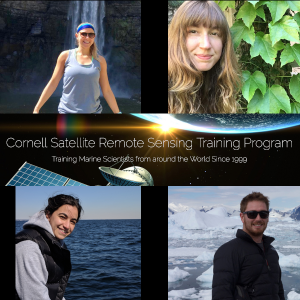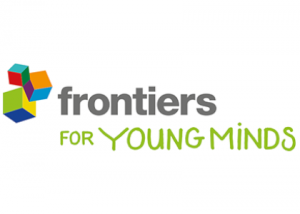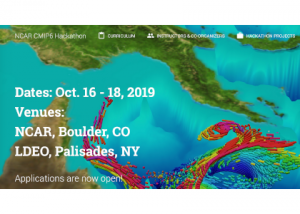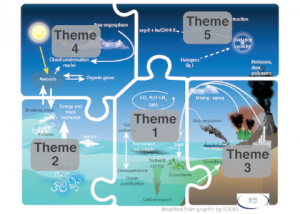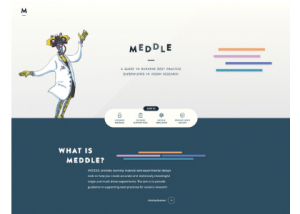OCB Postdoc Exchange!
A key objective of OCB is to train the next generation of ocean scientists and engage early career scientists in OCB and partner program meetings and training courses by providing travel and tuition support, networking, and mentoring opportunities.
Current and recent examples:
- We are seeking to fill the both the student/early career positions for the 2024 decadal re-occupation of the GO-SHIP (https://usgoship.ucsd.edu and http://www.go-ship.org) meridional line known as I08 – a hydrographic transect from ~66.5° to 28°S in the southeastern Indian sector of the Southern Ocean. Deadline for applications is October 29, 2024 or until filled. Further details on the positions are available here: https://usgoship.ucsd.edu/2023/10/07/u-s-go-ship-i08s-2024-cruise-opportunity-deadline-10-29-23/ . Please contact Alison Macdonald amacdonald@whoi.edu if you have questions.
- NSF OCE Postdoc Program (proposals due Nov. 10, 2023)
-
Early Career Research Fellowship Program, Honolulu, HI. Link: https://www.schooljobs.com/careers/hawaiiedu/jobs/4024095/asst-researcher-11-mo-pos84552t-and-84566t Close date; Closed until positions are filled. Review of applications begin June 26, 2023
- June 2-15, 2023: The UNOLS Arctic Icebreaker Coordinating Committee (AICC), with support from the NSF Office of Polar Programs, is offering a 2023 Arctic Chief Scientist Training Cruise program for early career researchers. This program includes a series of informational and pre-cruise planning meetings held virtually in March through May, 2023, followed by an on-site orientation in Seward, Alaska and week-long transit and survey on the R/V Sikuliaq between Seward and Nome (travel dates: June 2-15, 2023). Deadline to apply February 22
- Annual OCB summer workshop
- OCB scoping workshops
- Gordon Conference in Chemical Oceanography
- IMBeR IMBIZO Meetings (odd years)
- IMBER ClimECO Summer Schools (even years)
- SOLAS Summer Schools
- International Ocean Colour Coordination Group (IOCCG) Lecture Series
- International Ocean Colour Science Meeting (IOCS)
- Cornell Satellite Remote Sensing Course
- Univ. Maine Ocean Color Remote Sensing Course
- Training courses on ocean acidification
- Training courses on biogeochemical sensors
While we do not entertain individual requests for travel support, early career support is a high priority of bulk travel support requests submitted to OCB (see below for current opportunities). OCB strives to highlight the work of students and postdocs at its meetings and provide opportunities for interacting with federal agency managers and other scientists. OCB also maintains an early career position on its Scientific Steering Committee (SSC).
Early Career Opportunities & News
- Core Fulbright U.S. Scholar Program
- Young Earth System Scientists community
- View our Jobs & Postdocs page for current openings
- View our Student Opportunities page for undergraduate, MS and PhD listings
Pathways to Science: Early Career Fellowships & Scholarships
Click for full details: Program Solicitation NSF 21-538 Full Proposal Target Date March 3, 2021 November 12, 2021 Second Friday in November, Annually Thereafter SYNOPSIS The Division of Ocean Sciences (OCE) offers postdoctoral research fellowships (PRF) to provide opportunities for scientists early in their careers to work within and across traditional disciplinary lines, develop partnerships, and […]
Read MoreCOURSE CANCELLED FOR 2020 The Ocean Carbon & Biogeochemistry (OCB) Program (www.us-ocb.org) will support tuition, travel, and housing expenses for up to five U.S.-based students or postdocs to participate in the 2020 Cornell Satellite Remote Sensing Training Program taking place June 1 – 12, 2020 at Cornell University in Ithaca, NY.
Read MoreA new NSF supplemental funding opportunity (INTERN) allows students to test out non-academic career paths while in graduate school. PIs can request up to six months of additional support for current graduate students supported on active NSF grants. These supplemental awards allow students to pursue internships that will broaden their professional experience and enable them […]
Read MoreNew Biological Pump from Emma Cavan (Imperial College London) and McCork Studios, which incorporates some key remineralization processes, from this recently published Nature paper. New OA podcast featuring Libby Jewett, founding Director of the Ocean Acidification Program at the National Oceanic and Atmospheric Administration (NOAA). Topics discussed include: Chemistry of ocean acidification Impact on animals […]
Read MoreThe Cornell Satellite Remote Sensing course took place June 3 – 14 in Ithaca, NY. The goal of the course was to teach participants the basic skills needed to work independently to acquire, analyze and visualize data sets derived from a variety of satellite sensors. The course also covered image analysis methods to work with […]
Read MoreThis new journal is written for young people interested in science, and all the articles are also reviewed by children! This is a great place to try your hand at writing science articles for a very different but very interested audience. Frontiers for Young Minds is committed to providing high-quality, plain-language articles about cutting-edge science. […]
Read MoreThe CMIP6 Hackathon will be a hands-on event including tutorials, software development, data analysis, and opportunities for collaboration centered around effective computational workflows and CMIP-related science. The event will be held concurrently at two locations: the NCAR Mesa Lab, in Boulder CO, and the Lamont Doherty Earth Observatory, in Palisades NY. Limited funding is available […]
Read MoreApply to attend workshop on Ocean-Atmosphere Interactions: Scoping directions for U.S. research The workshop will be held October 1-3, 2019 at The Woodlands at Algonkian in Sterling, VA, and will gather U.S. scientists working at the air-sea interface to identify research priorities and facilitate the communication and collaboration required for future significant research advances. Leadership […]
Read MoreRationale for a web-based Best Practice Guide WEBSITE www.meddle-scor149.org The complexity of the natural environment and the number of drivers often prevent the design of a single fully factorial experiment evaluating the impact on a given species or ecosystem. For example, an experimental design to investigate 4 drivers, with 5 treatment levels per driver, and […]
Read MoreCourse call “Approaches and Tools for Numerical Modeling of High Latitude Ecosystems” DEADLINE EXTENDED – 15 MAY 2019 The Institute of Marine and Limnological Sciences and the Research Center Dynamics of High Latitude Marine Ecosystems – IDEAL of University Austral of Chile and the Research Center for the Oceanography of the Southeastern Pacific – COPAS […]
Read More

